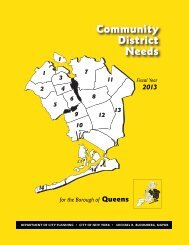Palm Oil Buyers Scorecard
WWF_Palm_Oil_Scorecard_2016
WWF_Palm_Oil_Scorecard_2016
Create successful ePaper yourself
Turn your PDF publications into a flip-book with our unique Google optimized e-Paper software.
Of the 137 companies scored only 11 reported that they met all of the additional<br />
sourcing requirements that WWF identify as crucial – either by specifying POIG or<br />
RSPO NEXT or listing all of the most crucial individual requirements.<br />
TOP TIP FOR CONSUMERS<br />
TO HELP TO TRANSFORM<br />
THE TRADE<br />
You can ask your favourite<br />
brands when they expect<br />
to source either POIG<br />
Charter or RSPO NEXT<br />
verified CSPO. If they<br />
say they are not ready to<br />
do so, remind them that<br />
continuous improvement<br />
is essential if the industry<br />
is to make progress on<br />
tackling the most important<br />
challenges it faces. Strong<br />
signals from brands to their<br />
suppliers are essential in<br />
pushing growers to improve<br />
their practices.<br />
It is early days for POIG and RSPO NEXT and neither is yet available in substantial<br />
volumes in the market – so it is unsurprising that not many brands have yet set either<br />
as a sourcing requirement. Only two companies, Danone and Ferrero, are POIG<br />
members. However, it is clear that this is the direction leading palm oil users are<br />
moving in.<br />
A further 26 companies did not specify POIG or RSPO NEXT but did tell us that they<br />
require action from their suppliers on one or more of the individual issues.<br />
Between them, the 37 brands with additional sourcing requirements use more than 4.6<br />
million tonnes of palm oil a year – a clear signal to growers that there is a large market<br />
for palm oil produced to the highest standard.<br />
Notably, 29 brands specify that their suppliers should be ensuring that only legal FFB<br />
enter into their supplies. The case of Tesso Nilo (see page 56) clearly shows that even<br />
the most progressive growers are failing to control their independent FFB sourcing.<br />
The efforts to date by the industry to introduce due diligence seem not to be up to the<br />
task of assuring their customers of legality, never mind sustainability.<br />
Figure 6<br />
How many companies<br />
are setting their own<br />
additional sourcing<br />
requirements?<br />
GHG REDUCTIONS<br />
19<br />
RSPO NEXT<br />
8<br />
LEGAL FFB SOURCING<br />
29<br />
GHG REPORTING<br />
13<br />
POIG CHARTER<br />
6<br />
ZERO-NET EMISSIONS<br />
33<br />
BANNING HARM-<br />
FUL CHEMICALS<br />
17<br />
47 WWF PALM OIL BUYERS SCORECARD 2016




